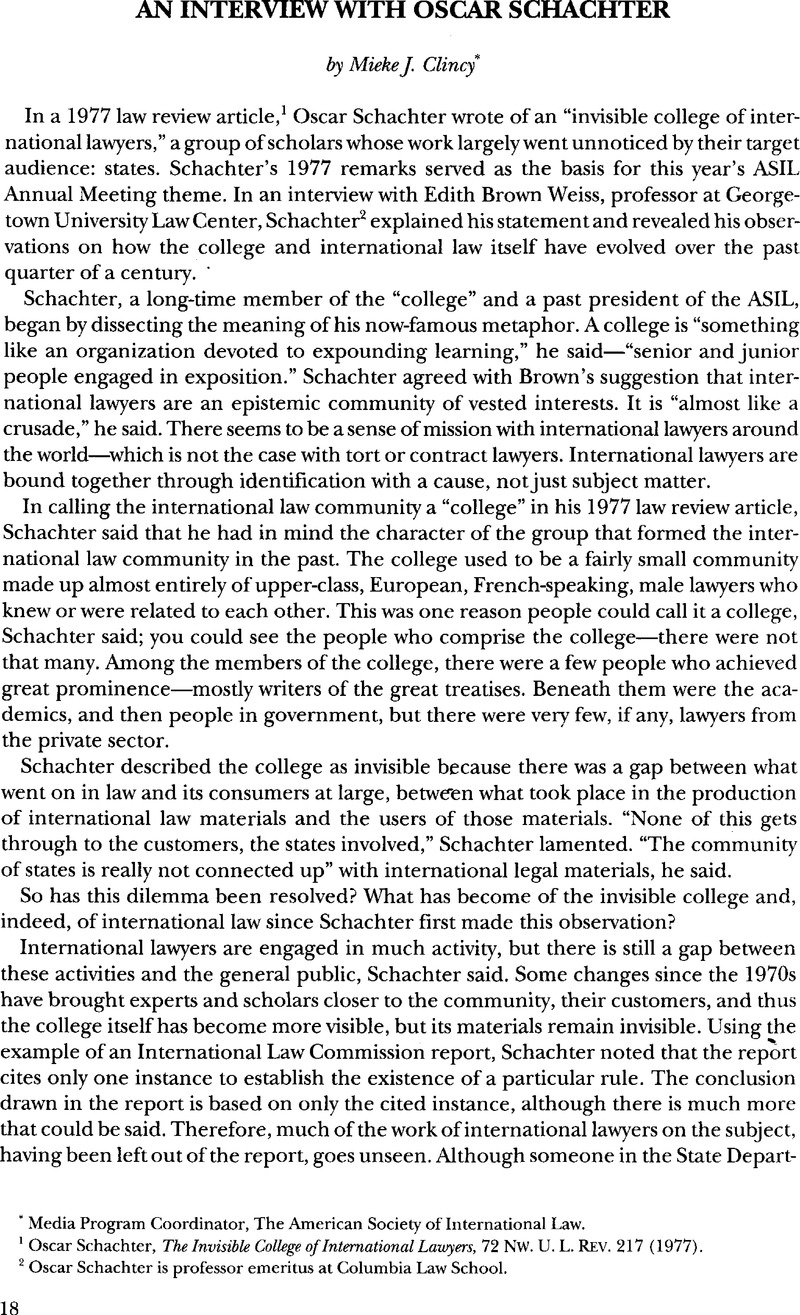No CrossRef data available.
Article contents
An Interview with Oscar Schachter
Published online by Cambridge University Press: 28 February 2017
Abstract

- Type
- Meeting Report
- Information
- Copyright
- Copyright © American Society of International Law 2001
References
1 Schachter, Oscar, The Invisible College of’International Lawyers, 72 Nw. U. L. Rev. 217 (1977)Google Scholar.
2 Oscar Schachter is professor emeritus at Columbia Law School.
3 Schachter’s answer was simply that Acheson “would be shocked” if the college called him a member.
4 See Vagts, Detlev F., Are There No International Lawyers Anymore? 75 AJIL 134, 135 (1981)CrossRefGoogle Scholar (“Evidently, it is the coming thing for lawyers to group themselves along specialty lines.”).
5 See. Oppenheimer, J. Robert, Prospects in the Arts and Sciences, in The Open Mind 133, 135-37 (1955)Google Scholar, see also Schachter, Oscar, United Nations Law, 88 AJIL 1, 16–17 (1994)CrossRefGoogle Scholar.
6 When asked about the role of international lawyers in ascertaining and formulating existing international law, Schachter explained the ideological divide in what was otherwise a fairly homogenous community of international lawyers in the nineteenth and early twentieth centuries. International lawyers, who were predominantly positivists, considered it a noble duty to state the lex lata (the law as it exists); however, in negotiations and decision making (e.g., the resolutions of the Institute of International Law), both positivist and naturalist views were represented. Some hundreds of statements emerged from negotiations in which both views were presented. At that time, there was a tension between the naturalists, who argued that law is not physics or chemistry but rather “an area in which values and basic principles of justice” are involved, and the positivists, who felt that one had to accept the law as it is. Each side felt that it had moral superiority. But “if you look through the readings, the discussions, and the resolutions that came out, you find both .. . the attempt to state the law as it is and the attempt to introduce a conception of justice,” Schachter said.




